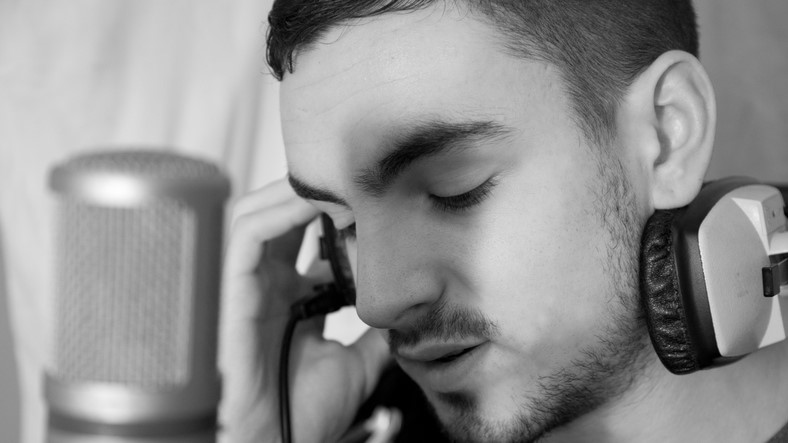Student Producer: Bringing out the Best in Young Artists

As a teacher, I always looked at my job as more of a “student producer” than a teacher. Unfortunately, the term producer has become somewhat distorted. These days we tend to think of producers as famous people who throw parties, get wasted, and constantly demand attention, but real producers are very different.
When I think of the role of a producer, I imagine a genius in their field using their skills and talents to bring out the best in their artists. Quincy Jones, Rick Rubin, and George Martin are all famous producers who did just that.
Sometimes I think teachers can get too concerned with the “information” and lose sight of the students’ needs and process. Worse, some schools refuse to even consider the students’ process as valid. I often see teachers not even listening to the students, their needs, or interests. So many times, I have seen teachers pretty much walk in and just talk at the room. Sure, they might let students ask questions, but they aren’t really listening too much. They are listening for the opportunity to either correct or acknowledge a kid, which can become more about affirming the teacher.
I invite you to re-think of your role as a Student Producer. Listen, observe, and be flexible. Like every great producer, you have to know your craft better than everyone else and always want to improve yourself. George Martin had the technical know-how to create the amazing sound of many Beatles records. Without that knowledge, their future would have been very different. Imagine if he had gone in the studio and said, “Ok boys, here’s how its gonna work: we’re doing it my way.”
The greatest part of teaching a Rock Band class was that no one really knew what it should look like, so I was rarely judged until the performances.
I was able to allow students to improve at their pace, in their way, and improve their skills. I simply guided them to a better result because I knew how to show them to hone the process. Could I sing better, or play better, or write better? Definitely not, but I could fix issues, encourage, inform, and inspire. I didn’t say, “Here is how you play music,” but I did say, “That is not how it goes,” or “You’re gonna wanna to fix that, trust me.” And they did trust me. I was often able to create music students with the confidence to explore and grow on their own. What teacher doesn’t hope for that outcome?
It’s hard to imagine a classroom where the students are in control of their learning. It’s much more work and takes a certain calm in chaos approach. It also takes a certain student. I believe every student is capable of this process and wants to be in control, but many students are so unfamiliar with being in control. That issue has been created by us, the education system, and parents. More on that in the future.
A great producer builds a foundation of confidence within the artist. He knows the artist has to perform this art on their own, confidently.
You’ve been to a kids’ soccer game, right? Who’s the worst parent on the field? The worst parent is the one screaming every single thing at their kid. “Go left, move, run faster, get back to the ball”—we all know they type. The majority of parents enjoy watching the game and seeing the kids figuring it out. Yelling a word of encouragement every now and then is great, but mostly they stay out of the way. If you let it happen, seeing them grow on their own is the most rewarding part.
Why can’t the classroom be the same way?
Sometimes you really have to just put students in there and not tell them the plan. I’ve seen it work, and honestly, I’ve seen it crash. Slowly, over time, students get more and more confident. The difference is the confidence is founded in themselves and not your instruction. Basically, render yourself useless. The good news is more kids are coming so you’re not working yourself out of a job.
A great producer builds a foundation of confidence within the artist. He knows the artist has to perform this art on their own, confidently.
Look for ways to become a “Student Producer” in your classroom. Don’t just teach at them. Think of your role as a producer, more than an educator. It will change your view and your approach. Revision and change is often a healthy way to educate, inspire, and live.
 Sean Smith is a member of the Give a Note Foundation Board.
Sean Smith is a member of the Give a Note Foundation Board.
After graduating from University of North Texas, Sean Smith moved to Nashville and began touring with established Country Music Artists, including Big and Rich and Muzik Mafia. As a composer, Smith has received awards for film composition, including a Telly and an Emmy for the short film Running Back to Forward. He has developed a successful music program at the Ensworth School in Nashville and is continuing to develop a unique curriculum that is designed to inspire and engage both teachers and students alike. Currently, Sean is Director of Sales for Quaver Music, in the Northeast region.




